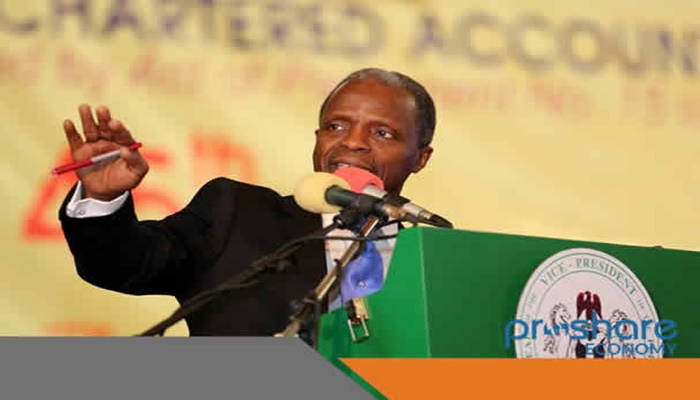
*Showcases Nigeria’s adherence to rule of law at Kenyatta’s second-term inauguration
Vice President Yemi Osinbajo (SAN) who spoke with reporters earlier Tuesday at the swearing-in ceremony of Kenya’s President Uhuru Kenyatta, which was attended by several African leaders advised African leaders to shun divisive policies.
On issues raised by President Kenyatta in Inaugural Speech
VP Osinbajo: The first issue, which I think is very important, is that of reconciliation and coming together, and somehow being able to avoid this politics of identity which is just divisive and it’s used to create more problems than we would ever solve.
I think that President Kenyatta was quite on the point when he said that we cannot continue to perpetrate this politics of identity, division and that it is time to come together as partners to make progress in the interest of the nation, I thought that was particularly important.
Lessons from Kenya Elections
VP Osinbajo: I think the most important thing is what he said about tolerance for the views of others and a desire to accept defeat, or the desire to accept if you do not win, or for that matter, a desire to go through due process or the legal process.
I think what has happened here is that, by and large, the constitutional procedure was followed to the latter. It involved the Judiciary; the judiciary at some point nullified the elections, they went back and conducted another round of elections and this is the result.
Kenya has shown that it has a robust enough constitutional structure, legal system and political process that work. This, I think, is a good thing. In some sense, Africa has learnt a great deal, we’ve been through many constitutional challenges like this. I think there are one or two points to learn, like the whole idea of ensuring that we allow the constitutional and legal processes, and ensure that we see it to the end and abide by what the courts say. I think it is very important.
And, in our case, it just reinforces what we already believe. At least in the past few years, we have shown that we will allow the constitutional process to prevail; sometimes we go to court, we spend two years and in the end, we abide by the outcome.






